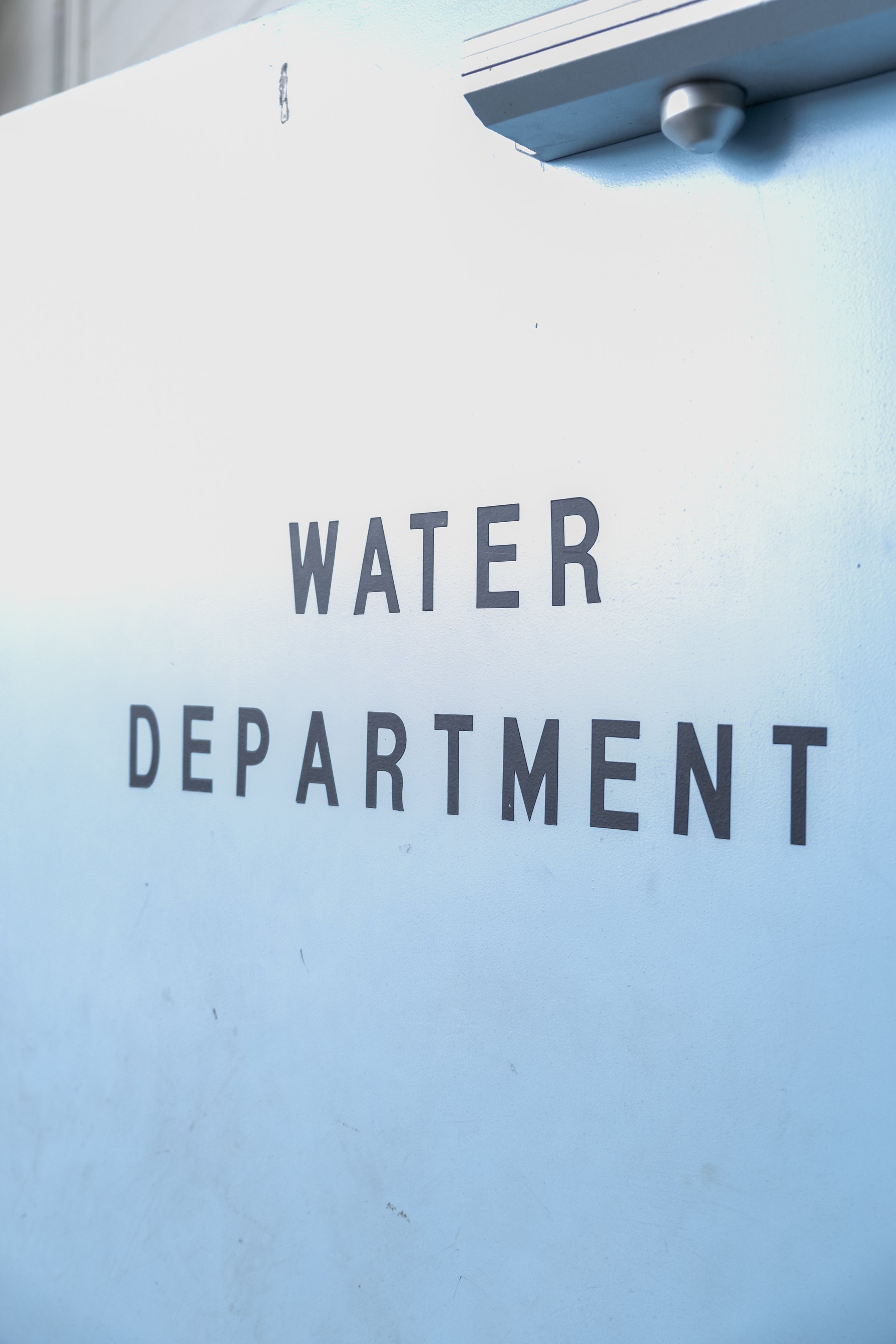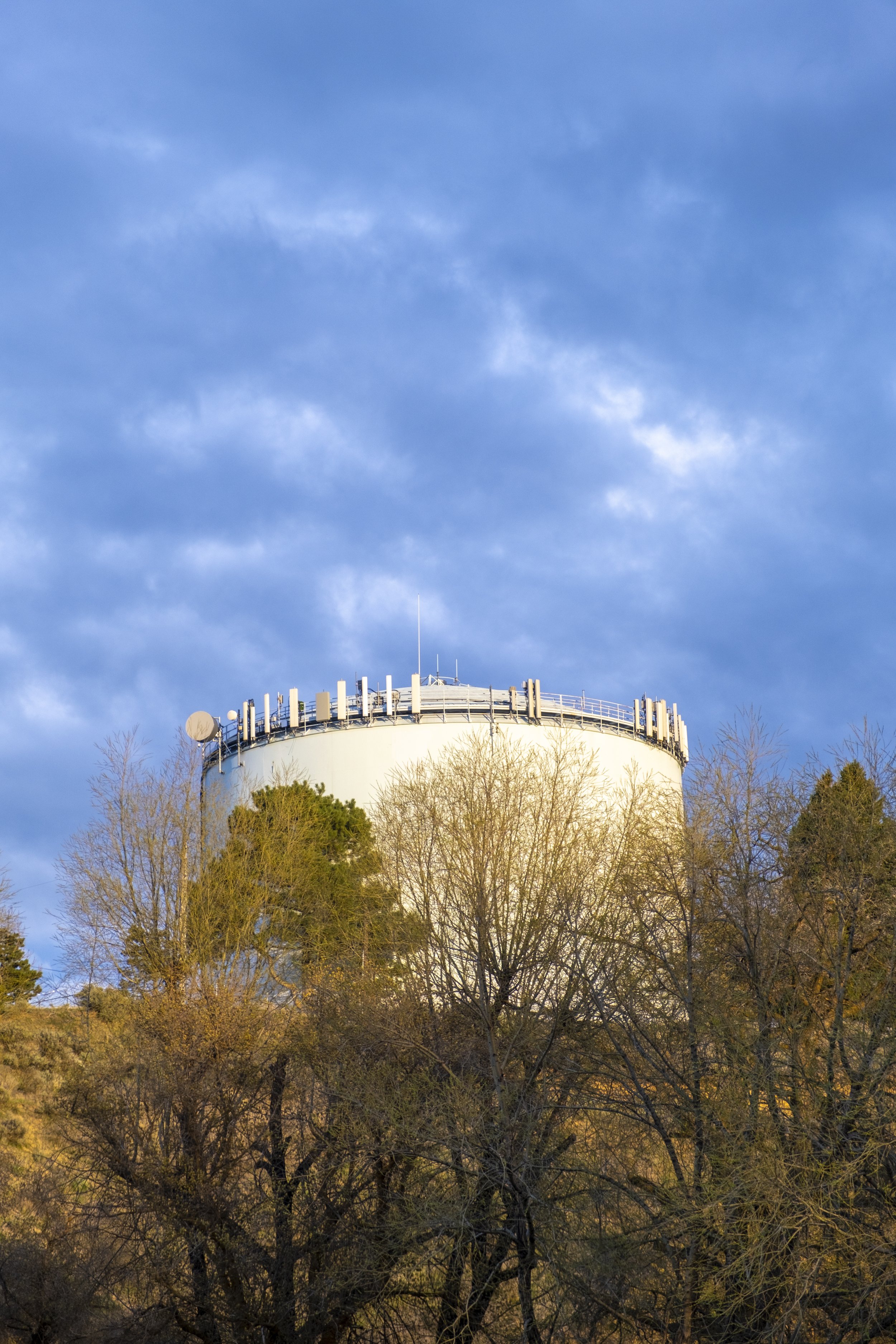Ellensburg Water
Story by Deacon Tuttle | Design by Evan Brown | Photos by Jakob Burnham
Water Distribution
1,630,000,000,000,000,000. Gallons Of. Drinking Water. On Earth. Craig’s Hill’s water tower houses four million of those gallons.
No matter the amount of water that surrounds us and the necessity for consumption, many don’t know how we Ellensburg residents get our drinking water.
The People Behind Our Water
Art Sinclair has been in water distribution for over three decades. With a background in mechanics and engineering, he decided to apply for a job opening in Ellensburg. Initially hired as a pump worker due to his credentials, he operated in that role for eight years before moving to his current job as a foreman.
Sinclair is proud of his team’s effort and the work they do daily.
“Every entity out there has what they do for the public. So in our case, our plaque would be that we clean, safe water, available whenever,” says Sinclair.
Shawn Byers is a senior pipe person on the team. He highlights the difficulties in obtaining qualifications to ensure they are ready to take on the dangers of the water division and provide the drinking water we are accustomed to.
“To do Art’s job or be in the water system we have to go to schooling. We both have our water distribution manager three. That was a really hard test for the state of Washington,” Byers says.
Sinclair says those tests consist of mathematical formulas that calculate how many gallons of water are in a tower or how to examine the correct balancing method for chlorine filtration.
Squeaky Clean Supervision:
For the water in the city of Ellensburg, bacteria is low and not an issue in our daily lives according to Sinclair.
“So we only have one well and we hardly ever use it. That isn't a deep well so very little bacteria, organisms or anything. It’s clean to start with,” says Sinclair.
This is because the well is very close to the surface. The depth is 900 feet which doesn’t leave room for any major issues to creep into the supply.
Even if a minor bacteria came into contact with your choice of drinkware at home, Sinclair says the chlorine measures the department takes would make that null and void.
“If you didn't drink like super fast, [the chlorine] will try to kill that bacteria before you do.”
There are several factors that are available via the City of Ellensburg Water Division site that showcase all of these measures, which are updated frequently.
“All the stuff we test for and all that. I mean hundreds and hundreds of things,” says Sinclair.
Sinclair stresses the importance inspectors play in supervising the purity of the city’s water coverage. This is at all levels of the process: the beginning, during the cycle and afterwards to do a final security check.
“They put in what we call hypochlorite chlorine, hybrid chlorine as they put all the pipe together, and then they hook a hose up with a backflow device and blow all that stuff out or fill up the pipe.”
Following that part of the process comes what they call baking. This involves leaving what is in the pipe for 24 hours. Chlorine “bakes” in the pipe and allows for the remaining liquid in the pipe to be purified. Tests can be taken once more after the water is released.
Whether it be from Yakima or Wenatchee, the water makes its way through this screening process in order to be proofed.
“They basically set up a culture and they stick it under it and leave it so many hours in so much heat, and then they count and if there's not enough counts of bacteria, and then it's considered passable.”
Byers says these types of tests are done 20 times a month.
These are done all over the area and not only for the water used in residential homes. Sinclair and Byers lists a myriad of well-known locales which share this treatment: Ellensburg High School, West Ellensburg Interchange, Bowers Airport, the list goes on.
Operations change given the season as well. For example, during Spring, the team works on reconnecting services for irrigation purposes.
“We had to go and reconnect every one of these services. I mean, taking the lid off, getting down in the box, new washers and tightening it down, checking to make sure it doesn't leak,” says Sinclair.
184 seasonal meters need to be updated every spring and fall season. Sinclair says it’s a big deal and takes a lot of time, but it’s necessary.
Another procedure has to do with ensuring fresh water is circulated through the system and nothing is stuck at a standstill.
“So we go around twice a year and flush mains in a place where there's a dead end and the water can't travel and it just sits there. We go to all those spots twice a year and flush out old water so that there's fresh water there.”
Valve Sizes and Numbers in the city
10 wells.
4 million gallons Craig’s Hill
Airport 1 million gallons
3500 water valves in the city
855 hydrants in city limits
Pipes, Problems, and Plans
“Hey did we have anything left from yesterday?” “Was there anything we said we wanted to do?” These are some of the typical questions Sinclair hears in the morning. When the aforementioned questions are answered, they plan the crew rotations and send them out for maintenance.
In total, the water division consists of a seven-person crew. Those out and about in the field are divided up into groups of two.
Many issues aren’t prevalent on a day-to-day basis, but a bigger issue that the crew has dealt with is water main breaks. These involve pipes bursting and overflowing with excess water, which Sinclair says isn’t out of the ordinary.
“Part of it is the ground shifts all the time and the biggest reason I think for our water main breaks that we've seen in the last 15 years is that there wasn't a good bedding put down. So there's like this pipe and there's a rock underneath it.”
Sinclair says all it takes is one small issue and…boom, ring snapped, water main breaks. Thankfully, many advances have occurred since Sinclair started in the field to lessen this frequency.
The water division uses ductile iron which is industry standard and combats leaking water well according to Sinclair.
Sinclair says they’re happy with the flexibility and how they switch operations week-by-week with Byers testifying the exact same sentiment.
“We have a pretty good crew.”






